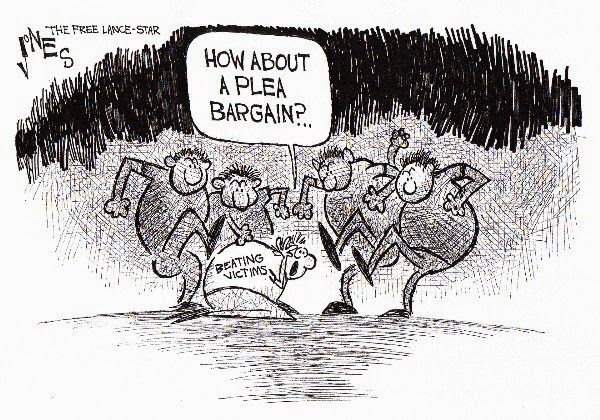PLEA BARGAINING – A Legal Analysis
Author – Sagar Single, Student at Gitarattan International Business School
Best Citation – Sagar Single, PLEA BARGAINING – A Legal Analysis, ILE Monthly Review, 1 (2) of 2023, Pg. 33-37, ISBN – 978-81-961828-8-5.
ABSTRACT
Plea bargaining is a process in which a defendant in a criminal case agrees to plead guilty in exchange for a reduced charge or sentence. This practice is widely used in criminal justice systems around the world, including in the United States, where it is estimated that 95% of criminal cases are resolved through plea bargaining[1]. While plea bargaining can be an efficient way to resolve cases and avoid lengthy trials, it also raises ethical and legal concerns, particularly regarding the potential for coercion or unfairness[2]. There are different types of plea bargaining, including charge bargaining, sentence bargaining, and fact bargaining. Charge bargaining involves negotiating a guilty plea to a lesser charge, while sentence bargaining involves negotiating a guilty plea for a reduced sentence. Fact bargaining involves negotiating a guilty plea based on certain facts or evidence being excluded from trial[3]. The use of plea bargaining varies depending on factors such as the type of crime, the defendant’s criminal history, and the jurisdiction in which the case is being tried[4]. Some critics argue that plea bargaining can lead to wrongful convictions and undermine the fairness and legitimacy of the criminal justice system[5]. Others defend the practice as a necessary tool to manage caseloads and ensure the efficient administration of justice.
Plea bargaining is a complex and controversial practice that has become a central feature of modern criminal justice systems. While it has its benefits, including resolving cases more quickly and efficiently, it also raises important ethical and legal questions that must be carefully considered by legal scholars, policymakers, and practitioners.Keywords: Criminal justice, Guilty plea, Charge bargaining, Sentence bargaining, Fact bargaining, Caseload management, Efficiency, Coercion, Fairness, Legitimacy, Criminal procedure.
[1] Schabas, W. A. (2017). The phenomenon of plea bargaining. Criminal Law Forum, 28(2), 153-166
[2] Cohen, J., & Dioso-Villa, R. (2017). The plea bargain problem. Annual Review of Criminology, 1, 421-446
[3] Koehler, J. (2018). The dynamics of plea bargaining: A behavioral and institutional perspective. Annual Review of Law and Social Science, 14, 81-99
[4] Paternoster, R., & Bachman, R. (2018). The process is the punishment: Managing cases without trial. Oxford University Press
[5] Bibas, S. (2017). Plea bargaining outside the shadow of trial. Harvard Law Review, 117(8), 2463-2547
